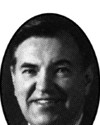Mr. Speaker, yesterday, on the initiative of the Association of French-speaking Parliamentarians, a reception was held here on Parliament Hill to mark the beginning of the Semaine de la Francophonie. Representatives of various Canadian organizations dealing with the Francophonie came from across Canada.
A number of Canadian personalities who have distinguished themselves in this country by working in different ways and in different communities to promote the French fact were honoured. We were especially happy to have among us at this
ceremony the Prime Minister of Canada, who received the honourary award of the Francophonie and who is a proud representative of Canada's French-speaking community.
Allow me today in this House, at the first opportunity I have had since the beginning of this Semaine de la Francophonie, to remind members of some interesting historic facts.
As hon. members know, the heads of state and government summit held at Chaillot Palace in Paris in 1991 ratified the proposal for an international Francophonie day and expressed the wish that each of the 47 states and governments forming the so-called Francophone community celebrate this day individually and at their convenience. It was officially set for March 20, the date on which was founded the Cultural and Technical Co-operation Agency, the first francophone intergovernmental organization, whose secretary general in the last few years has been a distinguished Canadian, Jean-Louis Roy.
We are very proud to take part in this day and thus show that we belong to the Francophonie. As active members of this multilateral group, we will continue to promote the basic values dear to all Canadians such as democracy, human rights, women's equality, child welfare, education and training. The francophone community includes over 400 million men and women scattered all over the globe.
The Francophonie is an integral part of Canada's foreign policy. We intend to continue playing an active role and contributing in various ways, so that all francophone and francophile Canadians continue to benefit from this window on the world and the fruitful contacts we maintain in many French-speaking countries throughout the world.
By being a member of the Francophonie, Canada also shows the rest of the world the unique features of Canadian reality. The Canadian Francophonie speaks with many accents. It starts out in the sandy dunes of New Brunswick, goes up the St. Lawrence River, and ends up in the western plains. During their travels, our francophones took on the accents of Antonine Maillet, Anne Hébert, and Gabrielle Roy. Far from resting on their laurels, our francophones now speak with new accents such as the Creole intonations of those who found refuge on these North American shores.
Canadians show solidarity with all the people of the world who use French to communicate, exchange ideas and better understand one another.
It is in this spirit that I invite all Canadians and their elected representatives in this House and in legislatures with a large number of francophones, be it in Quebec, New Brunswick, Manitoba, Saskatchewan, Alberta, or even British Columbia, for there are many francophones on Canada's West Coast.
So, on this day and week celebrating the Francophonie, I would urge all my colleagues in the House of Commons, particularly the members of the Bloc Quebecois, to realize that the French language is alive and well in Canada. It is not endangered as some members opposite would like us to believe. On the contrary! The French fact is strongly and brilliantly defended throughout Canada and reaches out around the world.

